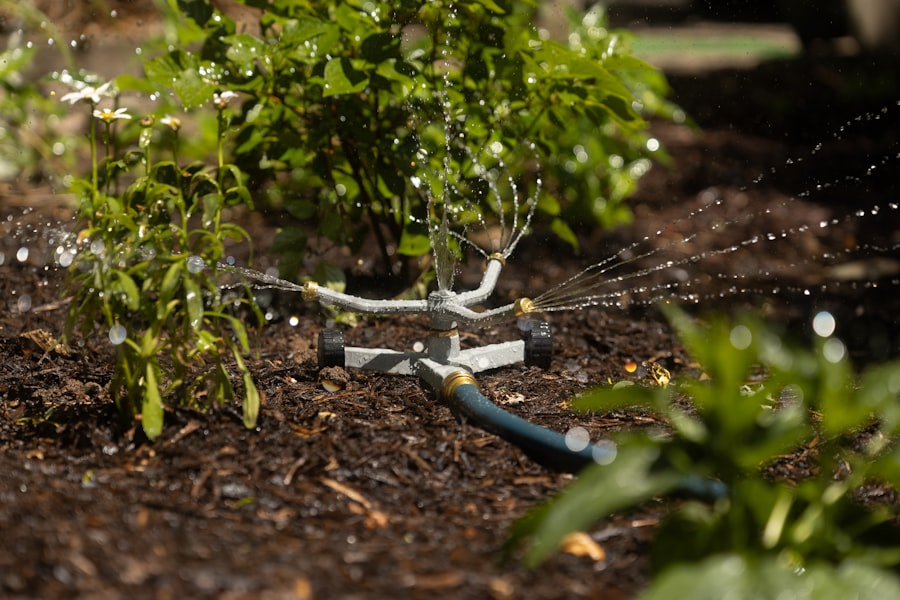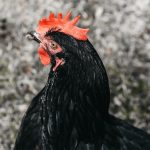Coyotes (Canis latrans) are common predators of chickens, posing a significant threat to domestic flocks. These highly adaptable canines are known for their opportunistic hunting behavior, often targeting chickens as an easily accessible food source. Coyotes possess the ability to infiltrate chicken coops through various means, including digging, climbing, and squeezing through small openings.
Their peak activity occurs during dawn and dusk, coinciding with periods when chickens are most vulnerable. Coyotes exhibit remarkable cunning and stealth, making detection and deterrence challenging. Their acute sense of smell and hearing further complicate efforts to keep them at bay.
The threat extends beyond adult chickens to eggs and chicks, emphasizing the need for comprehensive protection measures. Even chickens housed in coops may be at risk from determined coyote attacks. Understanding coyote behavior, physical capabilities, and hunting patterns is essential for developing effective strategies to safeguard poultry.
This knowledge forms the foundation for implementing appropriate security measures and management practices to protect domestic chicken flocks from coyote predation.
Table of Contents
- 1 Securing the coop: Fortifying your chicken enclosure
- 2 Deterrents and repellents: Keeping coyotes at bay
- 3 Guard animals: Using dogs and other animals for protection
- 4 Nighttime precautions: Protecting chickens after dark
- 5 Removing attractants: Minimizing food sources for coyotes
- 6 Seeking professional help: When to call in experts for assistance
- 7 FAQs
- 7.1 What are some effective methods to keep coyotes away from chickens?
- 7.2 What type of fencing is best for keeping coyotes away from chickens?
- 7.3 Are there any natural deterrents that can help keep coyotes away from chickens?
- 7.4 What should I do if I encounter a coyote near my chicken coop?
- 7.5 Are there any legal methods for dealing with coyotes that are threatening my chickens?
Key Takeaways
- Coyotes pose a threat to chickens as they are natural predators
- Fortify chicken enclosures with sturdy fencing and secure latches to prevent coyote attacks
- Use deterrents such as motion-activated lights and sound machines to keep coyotes away
- Consider using guard animals like dogs or llamas to protect chickens from coyotes
- Take precautions to protect chickens at night, such as locking them in a secure coop
- Minimize food sources for coyotes by securing garbage cans and removing fallen fruit from the ground
- Call in professional help if coyote threats persist despite preventative measures
Securing the coop: Fortifying your chicken enclosure
Building a Fortified Coop
One of the first steps in fortifying your chicken enclosure is to ensure that it is constructed with sturdy materials that are difficult for coyotes to break through or climb over. This may involve using heavy-duty wire mesh for fencing, reinforced doors, and secure latches to prevent coyotes from gaining access to the coop.
Regular Inspections and Maintenance
It’s also important to regularly inspect the coop for any signs of wear and tear, as even small holes or weak spots can provide an entry point for coyotes. Regular maintenance can help identify and address any vulnerabilities before they become a problem.
Strategic Layout and Deterrents
In addition to physical barriers, it’s important to consider the layout of the coop and its surroundings. Avoid placing the coop near areas of dense vegetation or cover that could provide hiding spots for coyotes. Clearing away brush and debris around the coop can help eliminate potential hiding spots for predators. Installing motion-activated lights or alarms around the coop can also help deter coyotes by startling them and drawing attention to their presence.
Deterrents and repellents: Keeping coyotes at bay

In addition to fortifying your chicken enclosure, there are various deterrents and repellents that can help keep coyotes at bay. One effective method is to use scent-based deterrents, such as predator urine or other strong-smelling substances, around the perimeter of the coop. Coyotes rely heavily on their sense of smell, so these odors can act as a warning sign to deter them from approaching the area.
Another option is to use sound-based deterrents, such as motion-activated alarms or radios, which can startle and deter coyotes from approaching the coop. Visual deterrents can also be effective in deterring coyotes. Hanging shiny objects, such as aluminum foil strips or reflective tape, around the coop can create visual disturbances that may deter coyotes from approaching.
Scarecrows or other lifelike decoys can also be used to create the illusion of human presence and deter coyotes from entering the area. By using a combination of scent-based, sound-based, and visual deterrents, you can create a hostile environment for coyotes and reduce the likelihood of attacks on your flock.
Guard animals: Using dogs and other animals for protection
Guard animals, such as dogs, can be an effective line of defense against coyote attacks on your chickens. Many breeds of dogs have been bred specifically for guarding livestock and can be trained to protect chickens from predators. These dogs are often highly territorial and protective of their flock, making them an effective deterrent against coyotes.
Their presence alone can be enough to deter coyotes from approaching the coop, and their barking and aggressive behavior can alert you to the presence of predators. In addition to dogs, other animals can also be used as guard animals for chickens. Geese, for example, are known for their loud honking and aggressive behavior towards intruders, making them effective at deterring coyotes.
Guinea fowl are also known for their loud calls and alert nature, which can help alert you to the presence of predators. By using guard animals in conjunction with other deterrents and fortifications, you can create a multi-layered defense system that significantly reduces the risk of coyote attacks on your flock.
Nighttime precautions: Protecting chickens after dark
Coyotes are particularly active at night, making it essential to take extra precautions to protect your chickens after dark. One important measure is to ensure that all chickens are securely locked inside the coop at night. This may involve installing automatic door closers or manually securing doors and windows to prevent coyotes from gaining access to the coop while the chickens are roosting.
It’s also important to regularly inspect the coop for any signs of damage or wear that could provide entry points for predators. In addition to securing the coop, it’s important to consider nighttime lighting as a deterrent for coyotes. Motion-activated lights around the perimeter of the coop can startle and deter coyotes from approaching, while also alerting you to their presence.
Keeping a flashlight or headlamp handy when checking on the chickens at night can also help deter coyotes by shining light on their presence. By taking these nighttime precautions, you can significantly reduce the risk of coyote attacks on your flock while they are most vulnerable.
Removing attractants: Minimizing food sources for coyotes

Coyotes are attracted to areas where they can easily find food, making it essential to minimize potential food sources around your property.
Secure Food Sources
This includes securing garbage cans with tight-fitting lids to prevent access by coyotes, as well as removing any pet food or birdseed that could attract them. It’s also important to avoid leaving food scraps or leftovers outside that could attract coyotes to your property.
Remove Attractants
In addition to food sources, it’s crucial to consider other attractants that may draw coyotes to your property. This includes keeping compost piles covered and secure, as well as removing any potential den sites such as brush piles or woodpiles.
Protect Your Property
By removing attractants from your property, you can reduce the likelihood of coyotes being drawn to your area and posing a threat to your chickens.
Seeking professional help: When to call in experts for assistance
In some cases, dealing with coyote predation on your chickens may require professional assistance. If you have tried various deterrents and fortifications without success, it may be time to seek help from wildlife experts or pest control professionals. These professionals can assess your property and provide recommendations for effective deterrents and fortifications based on their knowledge of coyote behavior.
In some cases, it may be necessary to consider more advanced measures such as trapping and relocating problem coyotes or implementing lethal control methods as a last resort. It’s important to consult with local wildlife authorities or pest control professionals before taking any action against coyotes, as there may be regulations or restrictions in place regarding their management. By seeking professional help when necessary, you can ensure that you are taking appropriate measures to protect your chickens from coyote predation while also adhering to legal and ethical considerations.
Professional assistance can provide valuable expertise and resources for effectively managing coyote threats to your flock.
If you’re looking for ways to keep coyotes away from your chickens, you may want to consider the type of coop you have. According to Poultry Wizard, the kind of coop you choose can play a significant role in protecting your chickens from predators. They offer valuable insights on what kind of coop is best for chickens, where to put the chicken coop, and tips for building a secure chicken coop. Check out their article on what kind of coop is best for chickens for more information on how to keep your chickens safe from coyotes.
FAQs
What are some effective methods to keep coyotes away from chickens?
Some effective methods to keep coyotes away from chickens include using secure fencing, installing motion-activated lights or sprinklers, using guard animals such as dogs or llamas, and removing attractants such as food scraps or garbage.
What type of fencing is best for keeping coyotes away from chickens?
The best type of fencing for keeping coyotes away from chickens is a sturdy, high-quality fence that is at least 6 feet tall and buried at least 12 inches underground to prevent digging. Electric fencing can also be effective in deterring coyotes.
Are there any natural deterrents that can help keep coyotes away from chickens?
Some natural deterrents that can help keep coyotes away from chickens include using strong-smelling plants such as lavender or garlic, and using predator urine or scents to create a barrier around the chicken coop.
What should I do if I encounter a coyote near my chicken coop?
If you encounter a coyote near your chicken coop, it is important to make loud noises, wave your arms, and throw objects to scare the coyote away. Do not approach or attempt to feed the coyote, and contact local wildlife authorities if the coyote becomes a persistent problem.
Are there any legal methods for dealing with coyotes that are threatening my chickens?
In many areas, it is legal to use non-lethal methods such as scare tactics, fencing, and guard animals to protect chickens from coyotes. However, it is important to check local laws and regulations regarding the use of lethal methods such as trapping or hunting coyotes.

Meet Walter, the feathered-friend fanatic of Florida! Nestled in the sunshine state, Walter struts through life with his feathered companions, clucking his way to happiness. With a coop that’s fancier than a five-star hotel, he’s the Don Juan of the chicken world. When he’s not teaching his hens to do the cha-cha, you’ll find him in a heated debate with his prized rooster, Sir Clucks-a-Lot. Walter’s poultry passion is no yolk; he’s the sunny-side-up guy you never knew you needed in your flock of friends!
Meet Walter, the feathered-friend fanatic of Florida! Nestled in the sunshine state, Walter struts through life with his feathered companions, clucking his way to happiness. With a coop that’s fancier than a five-star hotel, he’s the Don Juan of the chicken world. When he’s not teaching his hens to do the cha-cha, you’ll find him in a heated debate with his prized rooster, Sir Clucks-a-Lot. Walter’s poultry passion is no yolk; he’s the sunny-side-up guy you never knew you needed in your flock of friends!







